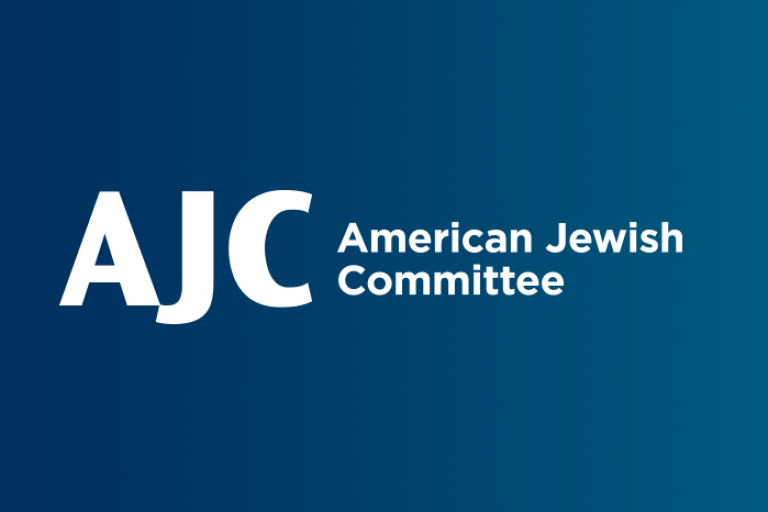September 23, 2020 — Washington, D.C.
This piece originally appeared in Washington Jewish Week.
By Alan Ronkin and George H. Lambert Jr.
In June, four white men attacked 18-year-old Althea Bernstein while she sat in her car at a stoplight a few blocks from the state capitol in Madison, Wis. They called her the n-word, sprayed her with lighter fluid and set her ablaze. Bernstein, a Black and Jewish woman, survived despite her third-degree burns, and an investigation is ongoing to bring to justice those responsible.
Hate crimes, antiemitism and racism are front and center in our hyper-polarized society. Divisions in American society have been exacerbated by a political and popular culture, accentuated by social media that provoke the worst human instincts and encourage us to see people as others and not as neighbors.
Earlier this month, the National Urban League and American Jewish Committee (AJC) partnered to fight back against the polarization that is infecting our nation. Together we announced Black-Jewish Unity Week, a time for reflection, standing together and acting to bring our communities together.
According to the FBI, 60 percent of all racial hate crimes in the United States impact the Black community and 57 percent of all religiously motivated hate crimes target the Jewish community. These numbers are the tip of the iceberg, as many cities and municipalities inexplicably report no hate crimes at all.
In Maryland, Virginia and the District of Columbia, reported hate crimes have been stable and rare. In 2018 there were only 50 reported hate crimes in Maryland, while the District and Virginia had fewer than 200. Our region has some of the strongest Hate Crime laws in the country — and it shows.
So how can we effectively fight hate crimes and rebuild the promise of our democratic, pluralistic society?
First, we need an accurate sense of what’s going on. That’s why the National Urban League and AJC are strong proponents of the federal No HATE Act, co-sponsored by Reps. Don Beyer (D-Va.) and Pete Olson (R-Texas), and in the Senate by Richard Blumenthal (D-Conn.). This bipartisan bill will provide incentives to local law enforcement to report hate crimes to the FBI. In turn, they would receive the funding and assistance to investigate and prosecute offenders.
Second, we must restore social cohesion by focusing attention on the shared needs and values that bind us. It is time for “influencers” from across the political, ethnic and racial spectrum to speak out and demand the restoration of civility and respect in our public and private discourse. If hate crimes are to end, we must cast their perpetrators to the fringes of society and delegitimize their messages.
Third, the rise of conspiracy theories provides an opportunity to fight hate. It will require rigor and bravery, but imagine if responsible, influential leaders stood up together, despite their differences, and denounced and refuted groups like QAnon and antisemitic and racist tropes about Jews, Blacks and other ethnic and religious communities. Washington’s Comet Pizza attack demonstrated how the dangers of destructive myths can lead to violence.
Responsible leaders like Reps. Denver Riggleman (R-Va.) and Tom Malinowski (D-N.J.) have introduced H.Res. 1094, a resolution rejecting QAnon as likely to encourage violent actions by domestic extremists. AJC and Urban League urge members of Congress to co-sponsor this important resolution.
When discussing domestic extremism, the white supremacist ideology should cause great concern. The Department of Homeland Security’s State of Homeland Threat Assessment 2020 report states that, “Among Domestic Violent Extremists, we judge that white supremacist extremists will remain the most persistent and legal threat to the Homeland in 2021.”
White supremacists, exploiting social media, have driven division in our country, promoting race-based hatred and violent hate crimes. While antifa and anarchists have also caused damage, the philosophy of white supremacy, well rooted in our nation’s history, profoundly drives people apart.
In this time of social unrest and great unpredictability, fighting hate and racism jointly sends an important message to all Americans that, especially now, it is time to pay close attention to what unifies us rather than obsessively focus on what could divide us.
It is not the responsibility of the Black community to solve racism nor is it the Jewish community’s responsibility to solve antisemitism. But our communities can set an example by reinvigorating our relationship and standing up jointly for a better America.
Rosa Parks once said, “Stand for something or you will fall for anything. Today’s mighty oak is yesterday’s nut that held its ground.” We must hold our ground against racism, antisemitism and all forms of hate. Once haters are tossed to the sidelines of our communities, we can get on with the real work of mending our torn civic tapestry.
Alan Ronkin is regional director of the American Jewish Committee in Washington. George H. Lambert Jr. is president and CEO of the Greater Washington Urban League.


